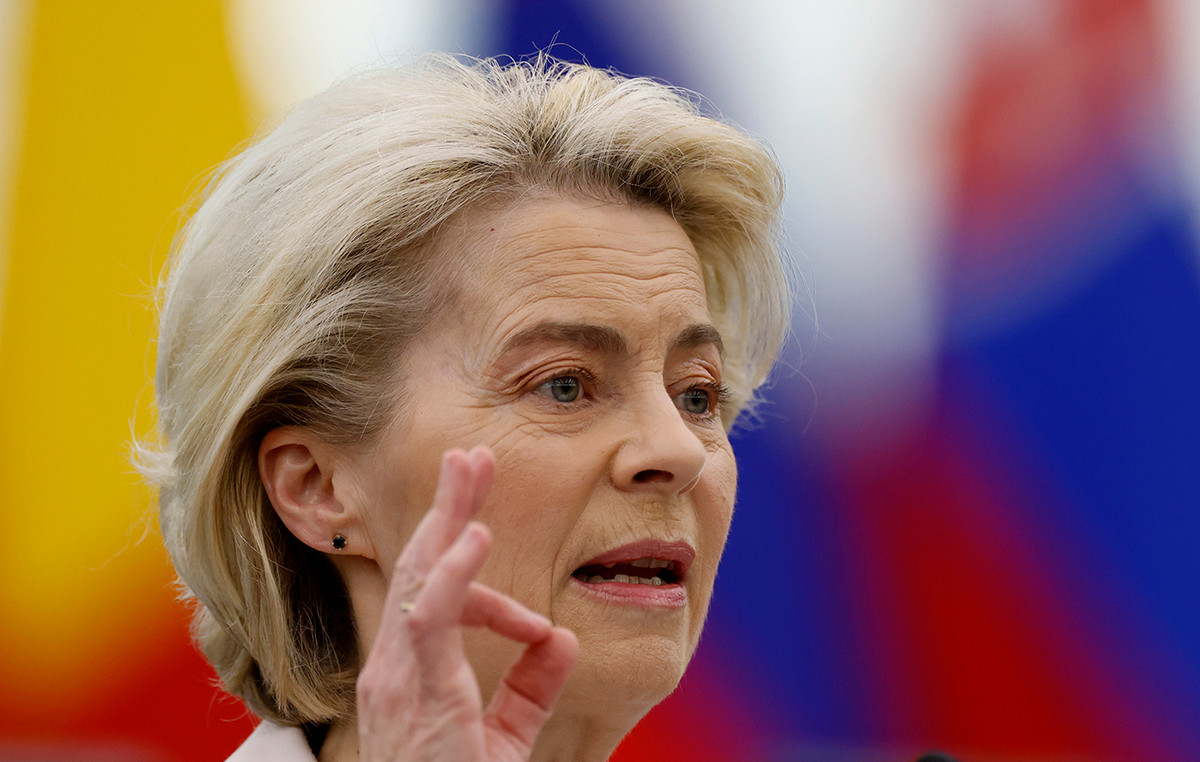The Covid-19 pandemic returns to the center of concerns in Europe. Germany, France, Denmark, Austria and Eastern European countries show increasing rates in the number of cases and deaths from the disease. Infections are also advancing in Russia, which is divided between Europe and Asia.
On November 4, the World Health Organization (WHO) warned that Europe is once again the epicenter of the pandemic. According to WHO, countries in Europe and Central Asia have different levels of implementation of vaccination. In the statement, the organization says that only 47% of citizens in Europe and Central Asia have completed the vaccination schedule. While eight countries have already surpassed the 70% coverage, in two countries the rate remains below 10%.
According to WHO, where vaccine adherence is low – in the Baltics, Central and Eastern European countries and the Balkans – hospitalization rates are high.
“We must change our reaction tactics to the Covid-19 outbreaks to prevent them from happening in the first place,” said Hans Henri Kluge, WHO regional director for Europe in a press statement.
Experts consulted by CNN help to explain the epidemiological scenario in Europe and warn about how the pandemic could impact Brazil in the coming months.
winter approach
As winter approaches, temperatures begin to drop in most temperate countries, such as Europe. Unlike Brazil, the coldest season of the year there is usually characterized by intense cold, with closed weather and the presence of snow.
The climatic condition favors changes in behavior, causing people to spend more time together indoors in search of comfort and warmth.
Eastern European nations such as Slovenia, Croatia, Georgia, Slovakia and Lithuania are among those with the highest rates of new cases on the continent (see table below). Other countries such as the United Kingdom, Germany, France and Russia also have increasing numbers of the disease.
On Thursday (11), Germany registered another daily record of cases, with more than 50 thousand new infections in 24 hours. The moving average of cases in the country is around 31,000, slightly below the United Kingdom, which is at 33,000. Russia, on the other hand, has presented an average of 40,000 new cases a day in the last week.
“During the winter, people tend to gather in closed places, and associated with this, the countries became more flexible regardless of the vaccination coverage rate”, said Júlio Croda, infectious disease specialist at the Oswaldo Cruz Foundation (Fiocruz).
It is noteworthy that what changes is people’s behavior, not the virus itself. According to virologists, SARS-CoV-2, the virus that causes Covid-19, has similar transmission capabilities in hot and cold environments. To reinforce the hypothesis, experts use as an example the large number of cases registered in Brazil between December 2020 and March 2021, the summer period in the southern hemisphere.
Vaccination gaps
For infectologist Júlio Croda, the increase in hospitalizations and deaths also reflects gaps in vaccination programs against Covid-19.
“The vaccine protects symptomatic infections and prevents 50% of transmission. The vaccine has its role and impact in reducing transmission by generating collective immunity”, he says.
“If you have a vaccination rate that is 50% to 70%, it is still not an ideal rate, there is no collective immunity, the virus can continue circulating. If this rate of immunization is not high, there will be an increase in hospitalization and deaths”, he adds.
The Fiocruz researcher assesses that there is difficulty in complying with the vaccine in Europe, which does not suffer from the lack of doses, but faces the resistance of the anti-vaccine movement.
“There is denial, the very strong anti-vaccination movement and the lack of governments to impose restrictive measures such as the vaccination passport, and persuasion and communication strategies to make people aware that it is important to be vaccinated. The vaccine is not an individual act, it is a collective act, if everyone gets vaccinated, we will have less circulation of the virus”, he highlights.
Although the anti-vaccination movement in Brazil does not have the same impact as the countries of Europe and the United States, the Fiocruz researcher reinforces that the global context should serve as a warning for the country.
“Brazil should be concerned, yes. Last year, at this very moment, we had a reduced number of cases. We made it more flexible, there were agglomerations associated with the end of the year festivities and there was an increase in cases in the country with the emergence of the Gama variant”, he points out.
Alert for Brazil
For specialists, advances in vaccination in Europe led to the early relaxation of restriction measures, including the removal of the mandatory use of masks.
“These countries have made the use of masks more flexible, something that Brazil is trying to do without having the conditions yet, without having adequate vaccination coverage for the second dose. The countries that are, in some way, with the worst indicators are those that have the lowest vaccination coverage in Europe”, stated Croda.
For the researcher, the impact this year tends to be smaller, due to the advance of vaccination. However, an increase in hospitalizations and deaths can occur mainly in states that have low rates of complete vaccination coverage (two doses or a single Janssen dose), such as Roraima (28%), Amapá (34%) and Pará (39% ).
According to Croda, the resumption of activities and social interaction with safety depends on complete immunization and the maintenance of the use of masks.
“Ensuring you are fully immunized reduces transmission. The group able to receive the third dose should do it as soon as possible to ensure more protection. Keeping the use of masks and avoiding agglomerations is fundamental, these are measures that reduce transmission”, he concludes.
Researcher José Eduardo Levi, from the University of São Paulo (USP), highlights the need to expand testing for Covid-19 in Brazil. “It is important to invest heavily in surveillance as a public health measure. Testing is still not something easy and widespread in Brazil, to enter schools or the work environment, for example”, he said.
The virologist emphasizes that the monitoring of variants of the new coronavirus must be intensified, especially with the increase in cases in Europe. According to him, the emergence of a new strain, with greater potential for transmissibility, such as the Delta variant, could lead to new waves of cases and hospitalizations.
“At this moment, there is no variant that justifies this important increase in cases in Europe. It’s still the same Delta. I don’t think there is a justification for closing borders, as long as there are no new variants there, but continuous surveillance is essential”, he concludes.
Reference: CNN Brasil







